- Home
- Lilith Saintcrow
Heaven’s Spite Page 5
Heaven’s Spite Read online
Page 5
“Why don’t you keep normal hours?” He turned even paler than usual the moment it escaped his mouth. I magnanimously refused to comment. Instead, I put my back to the wall near the door—or, if you want to be precise, to the overflowing bookcase right next to the door. “Never mind, forget I asked. What’s up?”
“I want you to get on that goddamn computer and find something out for me.” I did not tack on a What did you think, I wanted to sing Christmas carols? But it was close.
“What something am I finding?” He grabbed his glasses and put them on, blinked frowstily.
Something that will help me avert another fucking apocalypse. “I’ll tell you once you’re downstairs with some coffee.”
“God.” He groaned, levering himself up out of bed. “Why don’t you pick on someone else?” His threadbare, penguin-covered boxers flapped; he picked them out of his ass crack and yawned. His narrow, sunken chest was sparse with wiry, reddish-dark hair, and you could see the scars up along the right side of his ribcage. Claw marks. You could see clearly where the hellbreed’s three fingers had dug in, flexing.
There are reasons why Hutch doesn’t ever want to get close to the nightside. He’s wiser than most.
“Because I like you so much, sweets.” I made a little kissy noise. Under the cuff, the scar was a wet, burning pucker. There was a hole in my T-shirt, and the red gleam of the Eye peered out through it. Above the Eye, the carved ruby—a pale imitation, to be sure—glowed as well. I did not reach up to play with it nervously, but my fingers itched.
He grabbed a Santa Luz Wheelwrights T-shirt from a pile of laundry on the floor, pulled it on over his head. “Don’t say things like that. God. Go make me some coffee. Jesus H.”
I slid out of the room and down the hall. The kitchen was as gleaming and shipshape as his room was messy and dusty. He had a state-of-the-art espresso and drip coffeemaker, complex enough to make a cappuccino by itself and pilot a rocket ship at the same time. I poked at it for a few moments, thought longingly of what a great sound it would make if I shot the damn thing, and figured out how to make the drip side work. After a search through every cabinet, I found the coffee canister in the fridge, exactly where Saul would have put it. By the time Hutch shuffled down the hall, reeking of Right Guard and scrubbing under his T-shirt with one hand, there were six cups of coffee and more dribbling out.
“I made a whole pot,” I said, and glanced at the window. Night pressed against the bulletproof glass. Each window up here was reinforced with silver-laced chicken wire.
“What am I looking for?” He looked marginally more awake, grabbed a Wheelwrights coffee mug, and yanked the coffeepot out. Thick dark liquid sploshed. “Jesus. You make coffee like my dad did.”
If it’s not strong, it’s not coffee. I shrugged. “I need you to go digging all over. Find me any disaster, anywhere on the globe, in the past six months big enough to let a talyn or bigger hellbreed slip through. I want you to cross-reference it with everything you can find on Argoth.”
He jerked. Coffee splashed. My hand arrived, caught the mug before it could fall more than a foot, and I straightened, subtracting the pot from him with my other hand. The liquid burned where it hit my hand; it soaked into the tattered sleeve of my coat. Hutch stepped back, barking his hip a good one on the counter. It was anyone’s guess whether he was disturbed by Argoth’s name or by me moving too quickly to be strictly normal.
“Holy shit. No way.” He shook his head, his hair standing up in bedhead spikes. “Not that again. Really?”
“I don’t know yet. Could be a red herring.” I finished pouring, slid the pot back in, and offered him the dripping mug. “But I need everything you can get. If there’s any breath of that bastard getting out of Hell and making trouble, I want to know where, what, and when. I also need you to brush up your Chaldean and look at the Sorrows calendar. See if there’s anything shaking down there.” A deep breath. I tried not to notice how he was going whiter than his usual pasty-boy at the thought. “There might be more.”
“Sorrows and Argoth? Jesus Christ.” He took the cup with shaking fingers. “They’re connected?”
“I don’t know, Hutch. I need you to do these things, and at noon today you pack everything you need for a siege and go to Galina’s.” Because I am not about to lose my apprentice or my pet researcher.
“Goddamn, Kismet. What kind of trouble are we talking about? No, wait. I don’t wanna know. I’ll get started right now. Anything else I should take to Galina’s?”
“Just whatever you’ll need to stay there for a while, and to keep up your research. Don’t open up today.” I cocked my head, listening. The entire neighborhood was quiet, and I’d made sure I was clean before even coming near the bookstore.
“Like customers are beating down my door anyway.” He blew across the top of his coffee, snagged a pad of paper placed precisely under the yellow phone bolted to the wall at the end of the counter, and looked around for a pen. “Sorrows calendar. Argoth—hey, I thought you barred him from coming through. That time, what, two years ago or something? That case with the scurf.”
“I did.” But it was close, Hutch. So close. You don’t even want to know. “But I can’t be everywhere.”
He gulped. If it was possible to go any paler, he probably would have. “Yeah. I, um, I got that. You okay? You look pretty pissed off. More than usual.”
As well as covered in blood and blow-dried. I dredged up what could be called a smile. “Why, Hutch. I didn’t know you cared.”
He gave me the most evil look a weedy hacker boy I outweighed could possibly give. And to top it all off, my pager buzzed in its padded pocket.
When I dug it out and glanced at the number, I had to suppress the urge to roll my eyes. Never rains but it pours. “Can I use your phone?”
As if he was going to say no.
He backed up a couple more steps, as if I’d moved. “Go for it. As long as something doesn’t crawl out of it when you’re done. I’m gonna get to work.”
“Nothing will crawl out of your phone, Hutch. Promise.” I gave him a wide sunny smile, or as close to one as I could get. I even tried to make it unscary.
“That’s what you say.” He reached up, grabbed a box of energy bars from atop the sparkling-white fridge, and retreated with his coffee. I heard him stamp down the stairs, cursing, and picked up the phone.
It rang twice. I stared at the back of my left hand, the scrape across the knuckles healed up and looking weeks old instead of fresh. My fingers drummed on the countertop, bitten nails scratching the cheerful yellow tile. The Talisman was a warm weight against my chest, and a shiver went through me.
I can only hold the tide so long. Perry, standing in the warehouse and snarling at me. That case had almost ended up unleashing utter destruction on my city. The last time this Argoth came through into our world was in 1918, in Europe. The second Jack Karma—the one whose knife my apprentice had taken such a shine to—claimed the dubious honor of sending him back into Hell in Dresden, February 1945.
In the in-between time, Argoth had been a very busy boy. Some parts of the world were still reeling, between that and the great demonic outbreak in ’29.
The phone picked up. “Sullivan,” he barked.
“It’s me. You rang?”
“Yeah. Me and the Badger, we got some live ones. Well, dead ones. But it looks like one of yours.”
Jesus. “Where?”
“Cruzada. 153rd and Anita.”
Out in the suburbs. “All right. I’m on my way. Hold the scene.”
Like he needed me to tell him that. But he just made an affirmative noise and hung up.
There was little I could do until Hutch finished digging. The night was getting older by the second, and it already seemed too long. I drummed my fingertips for another few seconds, as if it would give me something useful.
Then I got going.
6
The Cruzada district is a collection of suburban streets, most of the houses
from the seventies and all of them needing to be taken on a street-by-street basis. Some are pretty nice, neat and clean, with hardworking neighbors who look out for each other. Some have crackhouses and shootings. The higher up and farther away from the river, the more likely there are to be bars on the windows and busted-down cars on the lawns.
Anita and 153rd was a buffer zone. Yellow grass slowly dying, bars on the windows that weren’t for decoration, but plenty of the houses still had neat fences and all-weather children’s toys scattered around. The air was heavy with the promise of spring, though the storms weren’t threatening over the river yet and the desert cold had its winter bite. A scrim of snow still clung to the mountains and frost-rimed anywhere the sun didn’t reach during the day.
It was three a.m. and dark even through the stain of orange citylight. The drunks would be making their way home, traffic fatalities occurring, the really bad domestic disturbances getting underway. In another couple hours the world would hold its breath for the long, dark shoal before dawn, the time when old people slip under the surface and drift away. But for right now, things would be hopping, one last frenzied burst of activity to take us through the night.
It wasn’t hard to find the place. Two black-and-whites, their lights dappling blue and red, and a coroner’s van lodged like splinters in the street in front of a trim fake-adobe. The adobe’s door was open, a warm yellow block of electric light spilling out. Sullivan, his sparse, coppery hair catching fire under the reflected light, stood there talking to one of the blues. It was Jughead Vanner, the big blond unlucky one. He ran across weird nightside cases with distressing regularity. It was getting to be a joke with the crew of regular exorcists attached to the police department.
Some people are like that—unlucky. At least he knew who to call when things got weird. And he knew what kind of scene not to go barging into. He hadn’t expressed any interest in the cases themselves yet, which was a good sign.
If he had, he probably would have ended up as an exorcist himself. Nobody can be unlucky and curious, and walk away untouched.
The gate in the chain-link fence was open, I pushed it further and it squawked. Sullivan and Vanner both glanced at me. The other black-and-whites were near the coroner’s van; bullshitting since there was nothing for them to do, but they couldn’t leave the scene until I cleared them.
“Hey, Kismet,” Sullivan called. “Glad you could make it.”
He looks like an overexposed photograph of a rumpled, thin man, despite the ruddy tinge to his hair. That washed-out exterior hides a mind so sharp it threatens to cut itself on a daily basis. Word was he’d almost ended up an accountant instead of a cop, and the finicky precision of his reasoning made me believe it. Of all the odd couples in Homicide, Sullivan and the Badger are probably the physically oddest.
He’s lanky and almost transparent. She’s round and solid-motherly, with a white streak in her iron-gray hair. She doesn’t get her nickname from that, though. She gets it from being tenacious as hell. If she and Sullivan ever tangled, she would be the one holding him down and rubbing his face in the gravel.
At least, that’s what the betting pool says. Odds are on the Badger any day of the week, and especially once a month.
She was in the hallway, arms crossed, her broad face solemn.
I took in the neatly clipped yellowing grass, touched with frost. People in the Cruzada have better things to spend their money on than astronomical water bills, especially in winter. No bikes or kid’s toys, thank God. “I hurried right on over to get a hot date with you, Sullivan. What do we have?”
Vanner, as usual, flushed a bright scarlet and dropped his baby blues to my boots. He was the size of a small mountain, the beefy type that runs to fat early without hard exercise. “Neighbor called from the pay phone two blocks away at the Circle Mart. Said they heard screaming. Dispatch sent us out with backup. We got here, everything quiet. Except the front door was unlocked. We identified ourselves, went in, and…”
The Badger stepped out, warm yellow electric light painting the stripe down the side of her head. “Hullo, Jill.” A soft, unassuming voice that had fooled a lot of perps into thinking she’d be easy to bowl over. “Pretty sure this is one of yours.”
I nodded. My earrings swung, and silver shifted, chiming. Vanner flinched a little at the sound, covered it well. “How many?”
“Maybe four. It’s… well.” Her mouth turned tight, pulled against itself. “Come on in, take a look.”
I stepped up onto the porch, sliding past Sullivan, who didn’t move. Jughead pressed back against the wall like I had some sort of disease.
“You have the worst luck, Vanner.” I tossed the words over my shoulder as the edges of my coat brushed his knee. “Seriously.”
He mumbled something. His entire face was crimson now, flags of color spilling down his neck.
Sullivan snorted. “I think Jughead’s got a crush on you. He keeps tripping over your kind of cases.”
Nobody can taunt like a Homicide detective. It’s like some sort of unwritten law. “Maybe that’s because he’s smart and perceptive. Ever think of that?”
“If he was, he wouldn’t be working this job.” Sullivan’s fingers twitched.
“Exactly.” I stepped into the hallway, my eyes roving. “And neither would you, right?”
“Bingo.” The Badger let out a soft laugh, pushed her glasses up on the bridge of her nose. Dark circles scored under her eyes, and her shoulders were held stiffly, as if she expected a blow. “Now shut up, Sully. Leave the kid alone.”
Sullivan muttered something uncomplimentary. The smile felt tight and unnatural on my face. Because as soon as I passed the threshold, the gassy, ripe smell of violent death filled my nose. It was enough to drive you back on your heels.
Huh. I stopped.
The entry hall was tiled in brick-red, and chilly. If there was any sort of heater or air-conditioning, it had been turned off. The smell should have just about knocked me over halfway up the path from the gate. Instead, it was like stepping through a curtain. One second, nothing but dust and the wind off the river. The next, the reek was so powerful my eyes threatened to water.
Badger was watching my face. She nodded, slightly.
Every nerve suddenly tingling-alert, I stopped dead. “Outside. Get those two off the front porch. Everyone pull back to at least the fence. Don’t let anyone go just yet.”
She nodded and padded away, shooing the boys in front of her. For such a round little woman, she is amazingly light on her feet. I drew a gun, kept it low and to the side. Didn’t ask her where the bodies were.
No use in asking what you’re going to find out anyway.
Living room: faded brown couch, camp chairs, dinged-up yardsale coffee table, big but old TV. Kitchen tiled in red, too, large window over the sink looking onto the backyard, clean, dry dishes in a rack. A large stockpot sat in the left-hand sink, full of water and a scrim of pinkish soap bubbles. Looked like someone had been cleaning up after spaghetti. The dining room held a table with six chairs, two places at the end stacked with bills. A whiteboard on the dining-room wall held five columns in black marker, each labeled neatly.
Joan. Elena. Alice. Kendall. LOVE!
Under each woman’s name, chores and notes in different handwriting and colors. Things like Take out garbage and Electric bill. In the LOVE column, two notes.
E, Kenny called. Said to call him back. And A, picked up your dry cleaning, it’s in your room. K.
Two bathrooms, both clean and neat. One had a Post-it at eye level on the mirror over the antiquated sink—Have u taken ur pill 2day? And a smiley face. Three smallish bedrooms, one pin-neat and pink, the other two looking like bombs had hit them.
The master bedroom, at the end of the hall, was a soup of bruised etheric energy. I kept the gun ready as I tapped the door with my foot. Something was wrong with the hinges; the door opened only reluctantly and wanted to swing back closed. Either that, or the pulsating darkness inside the
room wanted no witnesses.
Tiny crackles and sparkles of light preceded me, the sea-urchin spikes of my aura. I swept with the gun, my blue eye piercing and untangling a mess of threadlike tangles.
Oh, shit.
They lay on the king-sized bed, all four of them. Packed like sardines: one girl’s head on the pillows, the next with her feet at the top of the bed, and so on. All utterly still, when viewed through my dumb eye. Through my blue eye, however, little crackles and twitches tingled through them. Nerve-death, some of it, bits of electricity still trying to connect over synaptic gaps. In most circumstances the body doesn’t die all at once. Like living, death—even violent death—is most often a process.
But this cracking and twitching wasn’t just nerve-death. It was flat out unnatural.
Sweet-sick corruption filled my nose. Vanner and his partner probably hadn’t gone further than the door, and it was a damn good thing, too.
One of the bodies on the left, the one with its head pointing toward the foot of the bed, let out a gassy exhalation. The reek turned thick and clotted, like scabs pressing against the inside of my nostrils.
“Sssssss…” one of the bodies hissed, as trapped air escaped. The knotted foulness in the ether pressed down, obscenely, and the bodies jerked, writhing together. The scar tingled, and I reached over with my left hand, unsnapped the buckles, and tore the cuff off.
What was going to come next was not going to be pleasant.
If you’ve never seen a hellbreed reach through a rotting corpse, forcing the decaying meat and violated nerve endings to do its bidding, you’re lucky. The body jerks in ways no human joints would, crackling like fat tossed in a fire as cellular reserves are depleted, and they make deep guttural sounds that are the closest frozen human vocal cords can get to Helletöng. It was a good thing Vanner’s curiosity was nonexistent, because if he’d stepped over the threshold the way I was stepping now, I would have been looking at dead cops on this scene as well.

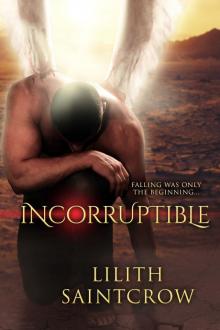 Incorruptible
Incorruptible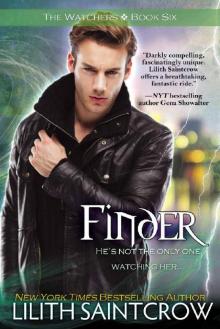 Finder (The Watchers Book 6)
Finder (The Watchers Book 6)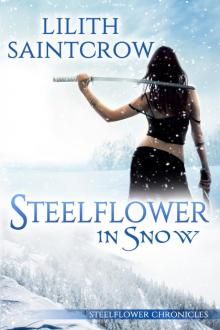 Steelflower in Snow
Steelflower in Snow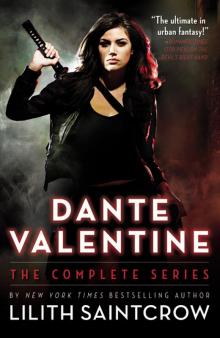 Dante Valentine
Dante Valentine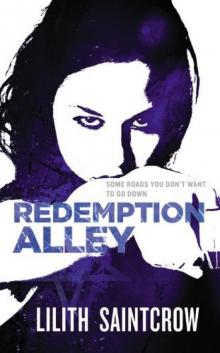 Redemption Alley-Jill Kismet 3
Redemption Alley-Jill Kismet 3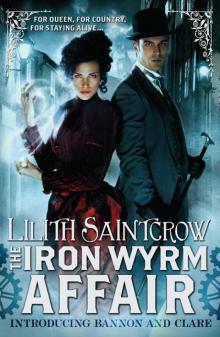 The Iron Wyrm Affair
The Iron Wyrm Affair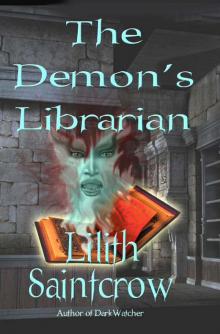 The Demon's Librarian
The Demon's Librarian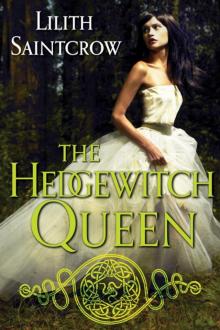 The Hedgewitch Queen
The Hedgewitch Queen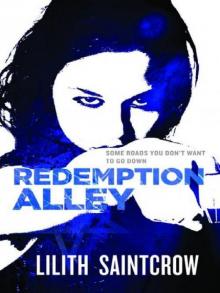 Redemption Alley
Redemption Alley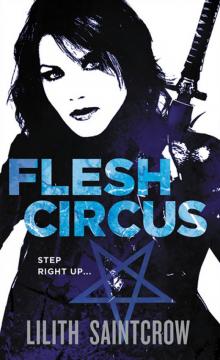 Flesh Circus
Flesh Circus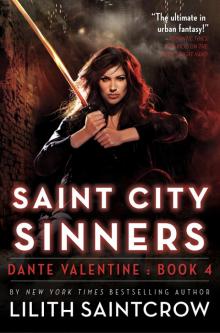 Saint City Sinners
Saint City Sinners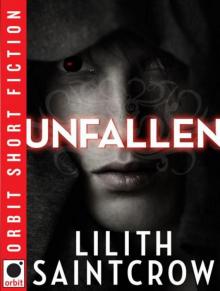 Unfallen
Unfallen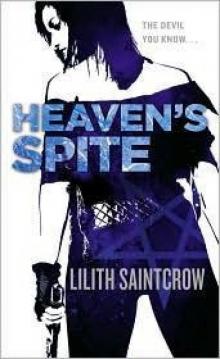 Heaven’s Spite
Heaven’s Spite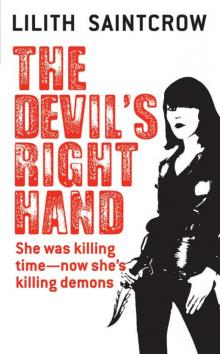 The Devil s Right Hand
The Devil s Right Hand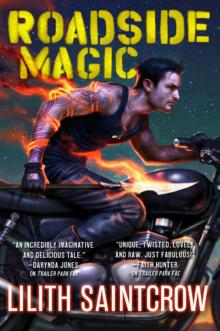 Roadside Magic
Roadside Magic Steelflower at Sea
Steelflower at Sea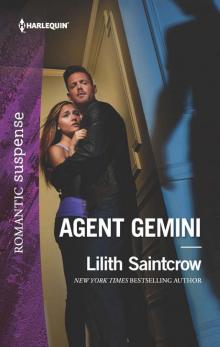 Agent Gemini
Agent Gemini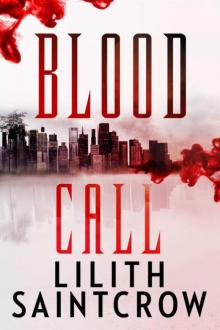 Blood Call
Blood Call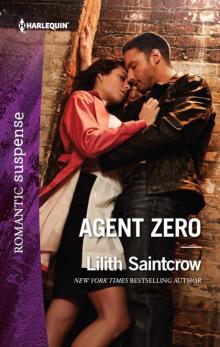 Agent Zero
Agent Zero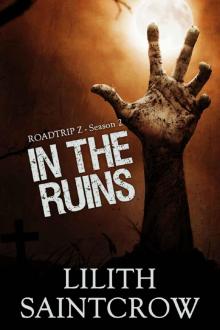 In The Ruins
In The Ruins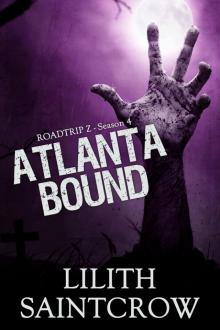 Atlanta Bound
Atlanta Bound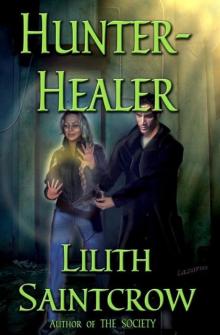 Hunter, Healer
Hunter, Healer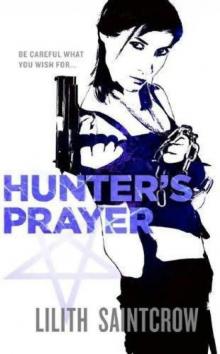 Hunter's Prayer
Hunter's Prayer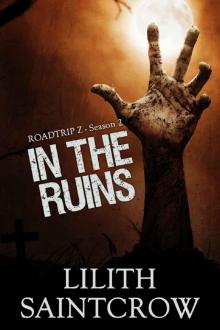 Roadtrip Z_Season 2_In The Ruins
Roadtrip Z_Season 2_In The Ruins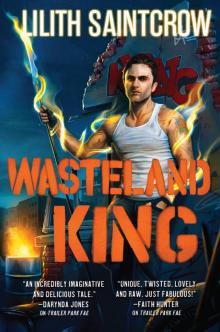 Wasteland King
Wasteland King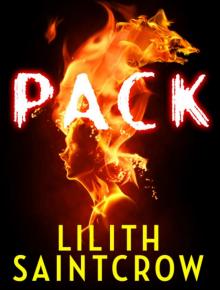 Pack
Pack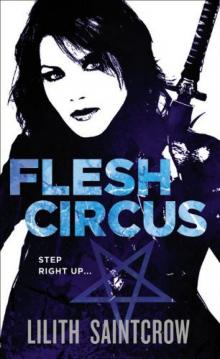 Flesh Circus - 4
Flesh Circus - 4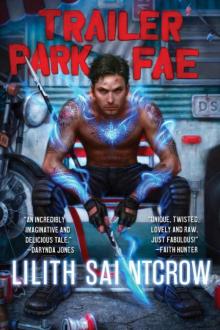 Trailer Park Fae
Trailer Park Fae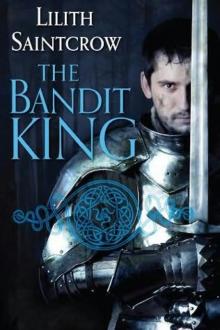 The Bandit King h-2
The Bandit King h-2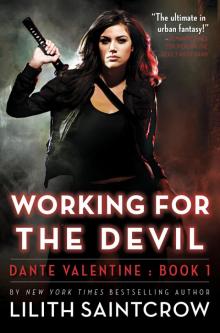 Working for the Devil
Working for the Devil Pocalypse Road
Pocalypse Road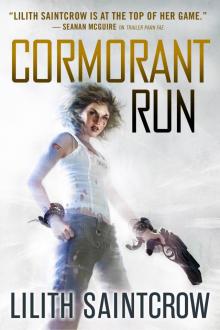 Cormorant Run
Cormorant Run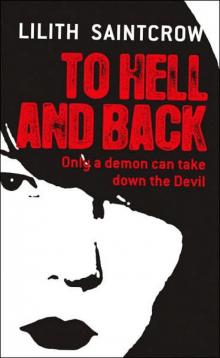 Dante Valentine Book 5 - To Hell and Back
Dante Valentine Book 5 - To Hell and Back Desires, Known
Desires, Known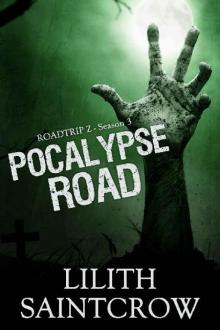 Roadtrip Z (Season 3): Pocalypse Road
Roadtrip Z (Season 3): Pocalypse Road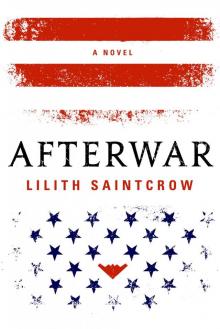 Afterwar
Afterwar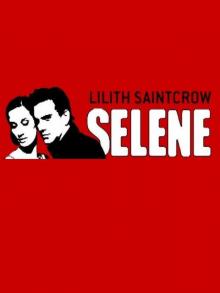 Selene
Selene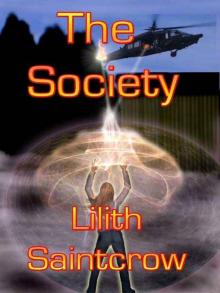 The Society
The Society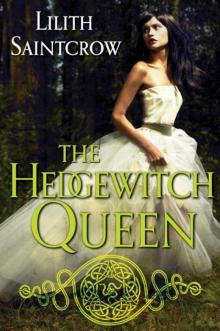 The Hedgewitch Queen h-1
The Hedgewitch Queen h-1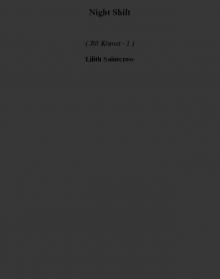 Night Shift jk-1
Night Shift jk-1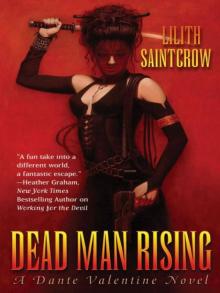 Dead Man Rising
Dead Man Rising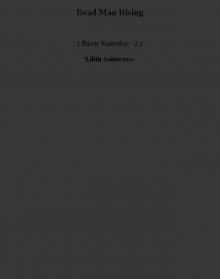 Dead Man Rising dv-2
Dead Man Rising dv-2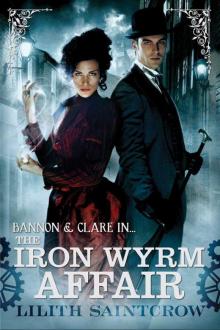 The Iron Wyrm Affair: Bannon and Clare: Book 1
The Iron Wyrm Affair: Bannon and Clare: Book 1 Saint City Sinners dv-4
Saint City Sinners dv-4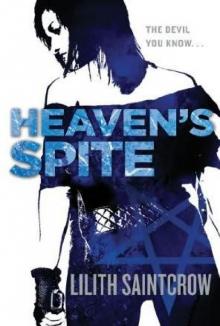 Heaven's Spite jk-5
Heaven's Spite jk-5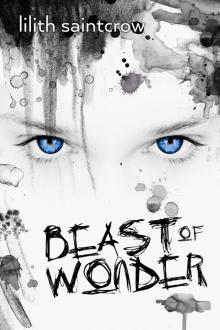 Beast of Wonder
Beast of Wonder Hunter's Prayer jk-2
Hunter's Prayer jk-2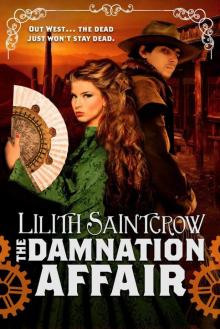 The Damnation Affair
The Damnation Affair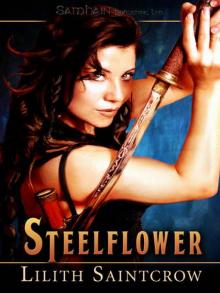 Steelflower
Steelflower The Red Plague Affair: Bannon & Clare: Book Two
The Red Plague Affair: Bannon & Clare: Book Two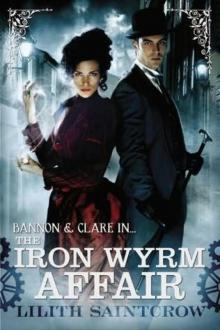 The Iron Wyrm Affair tb&ca-1
The Iron Wyrm Affair tb&ca-1 Flesh Circus jk-4
Flesh Circus jk-4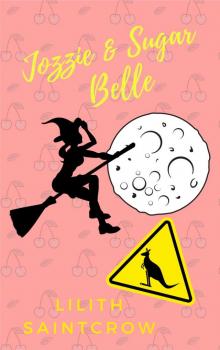 Jozzie & Sugar Belle
Jozzie & Sugar Belle Night Shift
Night Shift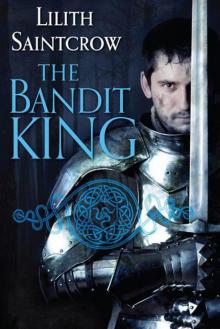 The Bandit King
The Bandit King![Hunter, Healer [Sequel to The Society] Read online](http://i1.bookreadfree.com/i1/04/05/hunter_healer_[sequel_to_the_society]_preview.jpg) Hunter, Healer [Sequel to The Society]
Hunter, Healer [Sequel to The Society]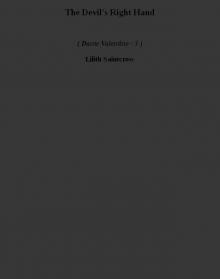 The Devil's Right Hand dv-3
The Devil's Right Hand dv-3 To Hell and Back dv-5
To Hell and Back dv-5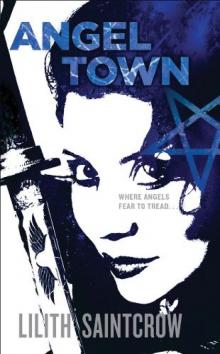 Angel Town
Angel Town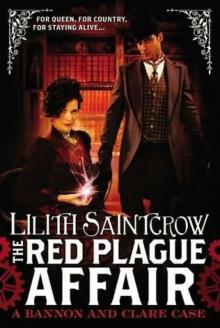 The Red Plague Affair tb&ca-2
The Red Plague Affair tb&ca-2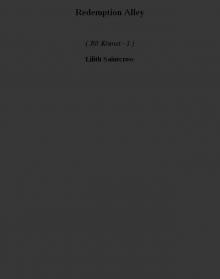 Redemption Alley jk-3
Redemption Alley jk-3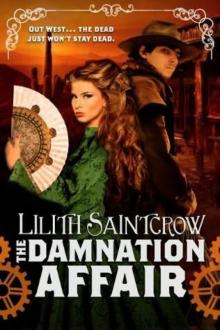 The Damnation Affair (the bannon & clare affairs)
The Damnation Affair (the bannon & clare affairs)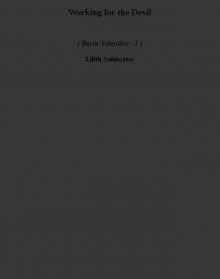 Working for the Devil dv-1
Working for the Devil dv-1